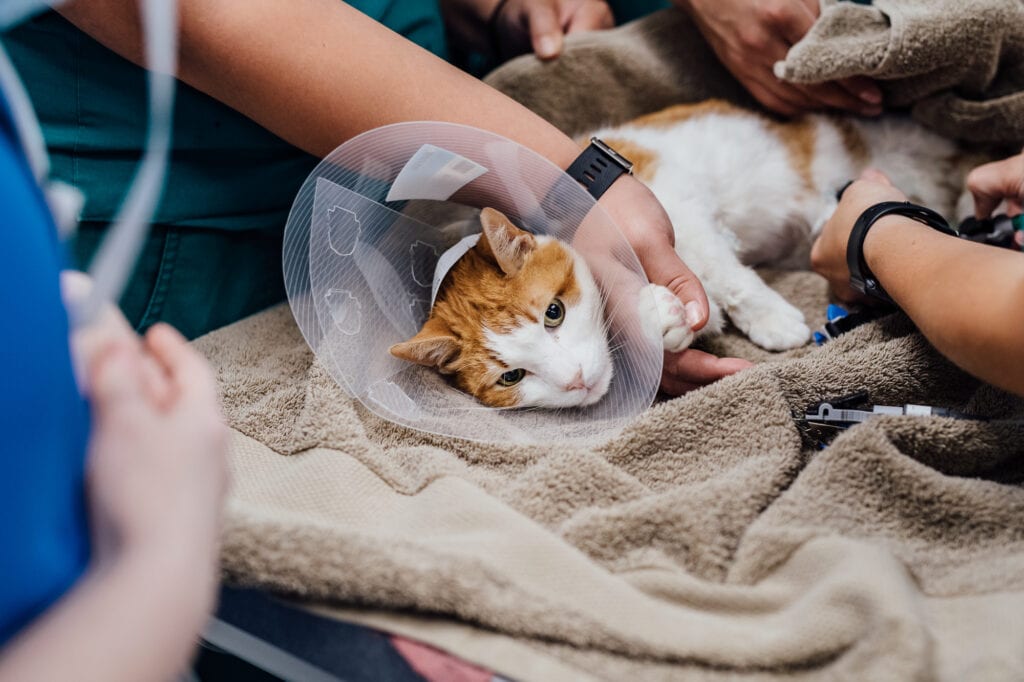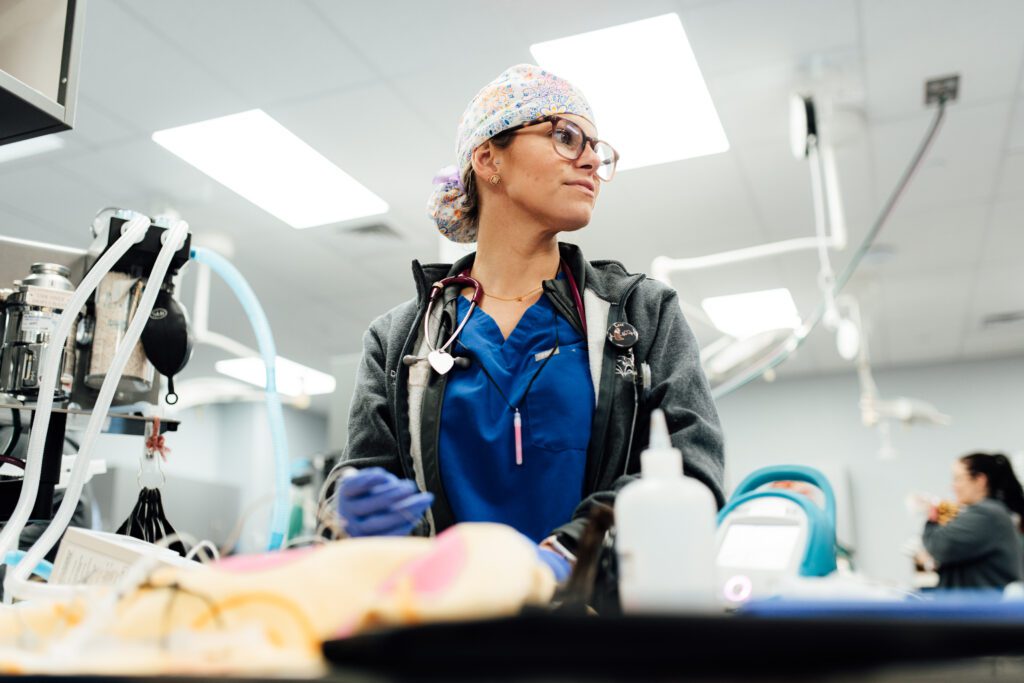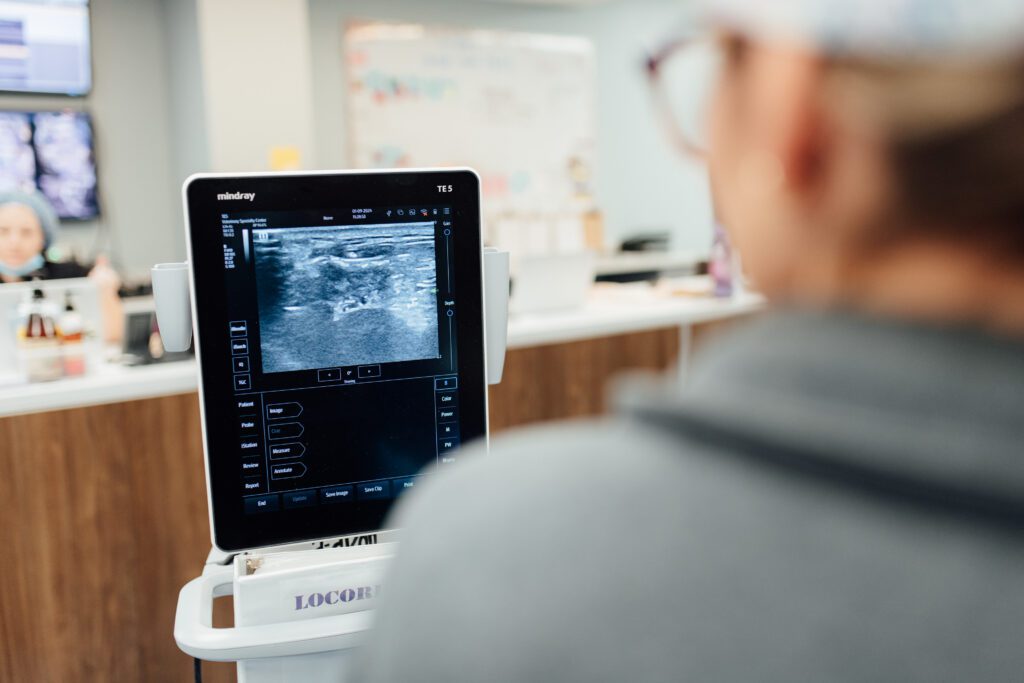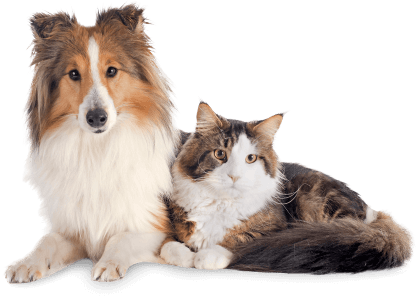What to Expect
What is Anesthesia?
 Anesthesia is the process of inducing unconsciousness, muscle relaxation, amnesia and analgesia (pain management) in a patient. Anesthesia is a critical part of many diagnostic and surgical procedures, including CT scans, MRIs, endoscopy, and surgical procedures; it helps to facilitate our ability to help your pet.
Anesthesia is the process of inducing unconsciousness, muscle relaxation, amnesia and analgesia (pain management) in a patient. Anesthesia is a critical part of many diagnostic and surgical procedures, including CT scans, MRIs, endoscopy, and surgical procedures; it helps to facilitate our ability to help your pet.
What is an Anesthesiologist?
A veterinary anesthesiologist is a veterinarian that went through an additional 4+years of training including a residency specific for anesthesia and analgesia. Anesthesiologists are critical in a large hospital with many other specialties –they consult regularly on sedation protocols, pain management at home and daily anesthetic cases. Their main job is to ensure your pet’s safety while they are under sedation or general anesthesia; they work closely with our skilled veterinary technicians to provide the best care for your pet.
Why is My Pet at the Hospital for the Day for a Short Procedure?
Upon intake, patients are examined both by their admitting service as well as the anesthesia service. The anesthesiologists and veterinary technicians perform a physical exam on each patient that requires general anesthesia or sedation and then each patient receives an individualized protocol tailored to their specific needs. Many times, this includes the administration of anti-anxiety and anti-nausea medications to help facilitate their stay at our hospital. General anesthesia at VSC is very similar, if not the same, as anesthesia for humans –we insert an endotracheal tube (breathing tube) in your pet’s trachea to provide an airway and we administer intravenous (IV) and/or inhalant (gas) anesthetic to maintain anesthesia during your pet’s procedure.
Pain management is a significant part of the anesthesia service and we provide high-quality pain control both during and after your pet’s procedure. We are also available for pain management consultations from other services throughout the hospital for a team-based approach to your pet’s care. After your pet has had his/her procedure, he or she is recovered under the care of our veterinary nursing team. Special care is taken to provide a comfortable and stress-free environment for your pet while they recover from their procedure.
What Else Should I Know About the Anesthesia Service at VSC?

The anesthesia service uses state-of-the-art monitoring equipment to keep your pet safe under anesthesia. We continuously measure heart rate, electrocardiogram (EKG), respiratory rate, blood pressure, oxygenation, anesthetic depth and temperature. This allows us to rapidly respond to any problems or concerns under anesthesia. Patients under anesthesia are twice as likely to recover from a cardiac or respiratory event as patients not under anesthesia in the ICU–we utilize many tools to ensure your pet’s utmost safety while in our care.
Additionally, the anesthesia service provides advanced locoregional anesthesia –that is, we provide local blocks (local anesthesia, similar to that performed at your dentist) for many different kinds of procedures. We utilize a nerve stimulator to locate nerves to block them more effectively, and we will soon be adding ultrasound-guided technology to further assist our ability to provide analgesia and comfort to your pet both during and after their procedure. Other local anesthetic techniques include epidurals, dental blocks, wound soaker catheters and infusion of local anesthetics at the surgical site.
The anesthesia team works closely with the surgical team to provide the best pain management for your pet –sometimes this involves a combination of both local anesthesia (pain relief at the site of surgery) and systemic medications (that given IV or by mouth).
Should I Be Nervous About My Pet Undergoing Anesthesia?
 Anesthesia is always a risk for any patient –human or veterinary. Our anesthesiologists are here Monday through Friday and work with our veterinary nursing staff to provide individualized, custom protocols for each patient. If you are worried about your pet’s anesthesia, our anesthesiologists are available for consultation to help discuss any concerns you may have regarding your pet’s anesthesia. Additionally, we have an advanced electronic medical records system that allows us to provide electronic records of your pet’s anesthetic event –this information can be passed along to your primary care veterinarian to aid in future anesthetic events. Our anesthesiologists are also available for consultation via phone for referring veterinarians.
Anesthesia is always a risk for any patient –human or veterinary. Our anesthesiologists are here Monday through Friday and work with our veterinary nursing staff to provide individualized, custom protocols for each patient. If you are worried about your pet’s anesthesia, our anesthesiologists are available for consultation to help discuss any concerns you may have regarding your pet’s anesthesia. Additionally, we have an advanced electronic medical records system that allows us to provide electronic records of your pet’s anesthetic event –this information can be passed along to your primary care veterinarian to aid in future anesthetic events. Our anesthesiologists are also available for consultation via phone for referring veterinarians.
